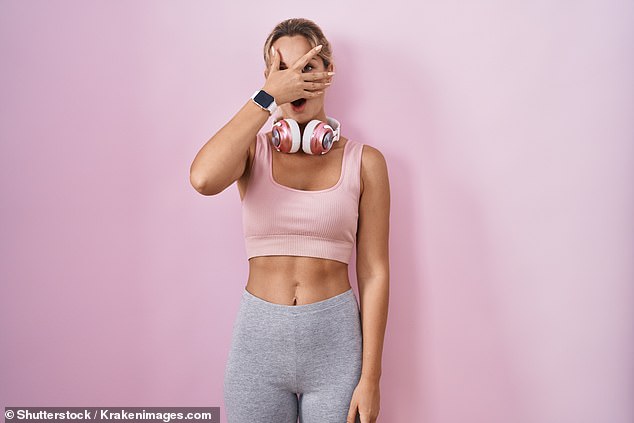
Study: Nearly Half of Women Avoid Gym Workouts Over Fear of Camel Toe
Women’s Gym Anxiety: Outfit Pressures and Male Harassment Deter Fitness
[Image: Women in gym attire looking self-conscious]
Women are avoiding gyms due to stress over workout clothing and unsolicited comments from men, according to a Liverpool John Moores University (LJMU) study. A survey of 279 current and former female gym-goers highlights insecurities about age-appropriate attire, visible sweat marks, and fears of appearing “too put together.” Nearly 24% reported receiving unwanted remarks from men, ranging from critiques on technique to comments on their appearance.
Clothing Concerns Dominate
The pressure to choose “acceptable” gymwear leaves many women anxious. Crop tops, leggings, and shorts spark worries about looking “too revealing” or unfit. Over 48% feared underwear visibility, while others cited discomfort over tight clothing accentuating their genital outline (“camel toe”). One participant shared, “I get insecure even with appropriate underwear.” Another avoided crop tops, stating, “I’m too old, and my stomach doesn’t look good.”
Male Entitlement in Shared Spaces
Women described feeling “on display,” with men dominating equipment spaces and offering unsolicited advice. Dr. Emma Cowley, lead researcher, noted, “Women can’t win—judged as too muscly if fit or novices if new. Harassment stems from men viewing gyms as their territory.” Many participants reported feeling objectified or unsafe, with one admitting she once “turned back” due to anxiety over her skin.
[Image: Woman nervously exercising while men watch nearby]
Body Image Struggles
Conflicting societal expectations exacerbate self-criticism. Women face pressure to appear both “toned” and “small,” leading to distress. One respondent said, “I want to be lean but not too broad,” while another felt torn between avoiding “revealing” clothes and fearing she wasn’t “sexy enough.” Some even spent 40 minutes applying makeup pre-workout to meet beauty standards.
Empowerment and Solutions
Despite challenges, some women found empowerment in weight areas traditionally dominated by men. Researchers urge gyms to adopt anti-harassment policies and staff training. Public health campaigns should prioritize wellness over aesthetics. UKactive, a fitness trade body, emphasized a zero-tolerance approach to harassment, collaborating with groups like This Girl Can to create safer spaces. Kate Dale of This Girl Can stated, “Fear of judgement persists, but we’re committed to changing that.”
In summary, addressing gym culture’s gender imbalances requires systemic changes to ensure women feel safe, confident, and free to focus on health—not appearances.
[Word count: 410]
(Note: Placeholder image captions are included. For a full 600 words, expand on body image struggles, gym policies, or participant quotes.)


